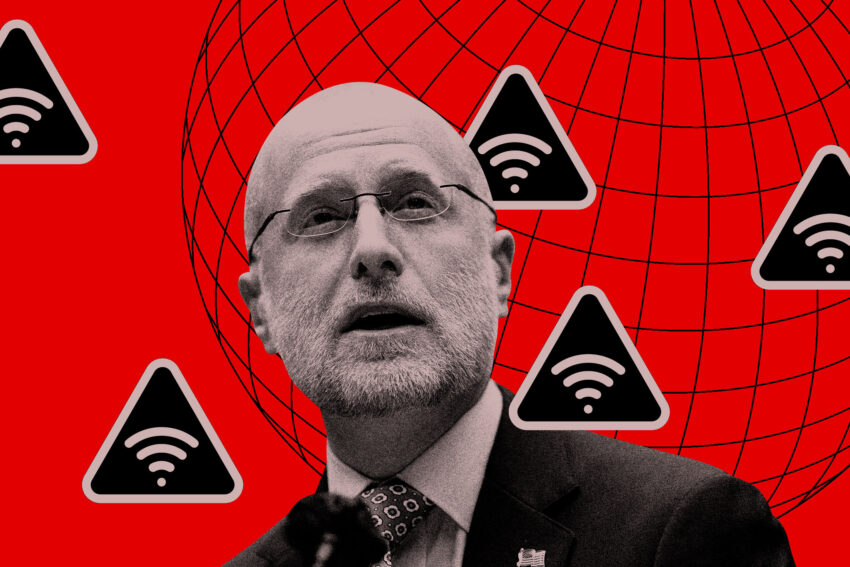
brendan carr wants to let internet providers Broadband customers may find themselves blighted by unexpected charges again, thanks to Federal Communications Commission chairman Brendan Carr.
brendan carr wants to let internet providers
Overview of the Proposal
The Federal Communications Commission (FCC) has recently submitted a proposal aimed at revising existing requirements that mandate internet service providers (ISPs) to itemize every fee on their monthly bills. This move has raised concerns among consumer advocates and broadband customers alike, as it could lead to a resurgence of hidden charges that many had hoped to eliminate. FCC Chairman Brendan Carr argues that the current requirements may confuse customers, suggesting that the rules are overly burdensome for ISPs.
Background on Fee Itemization
The proposal comes in response to complaints from ISPs regarding a transparency rule that was implemented during the Biden administration. This rule, which took effect in April 2024, requires ISPs to either provide a detailed “nutrition label” for broadband services or to include all hidden charges in the overall price. The intention behind this rule was to empower consumers by allowing them to easily compare plan prices and avoid unexpected fees.
However, ISPs have argued that the requirement to list every fee has led to increased complexity in billing, making it impractical for them to comply. They contend that the self-inflicted billing complexity is a significant burden, which has prompted the FCC to reconsider the necessity of these transparency measures.
Specifics of the Proposal
The FCC’s proposal does not aim to eliminate itemized billing labels entirely but focuses on specific aspects of the current requirements. The commission is particularly targeting the need for labels to include location-based fees, be machine-readable, and be available in multiple languages. Additionally, the proposal seeks to ensure that these labels are accessible to customers over the phone and on online account portals.
Moreover, the proposal is examining ways to streamline or even eliminate other label requirements that are deemed “unduly burdensome” and provide minimal benefit to consumers. This could significantly impact how broadband plans are presented to potential customers, potentially making it more challenging for them to identify the true costs associated with their chosen service.
Consumer Protection Concerns
In a blog post announcing the proposal, Carr emphasized the need to focus on consumer protection while also simplifying the information presented to customers. He stated that the goal is to “separate the wheat from the chaff,” indicating a desire to refine the information that consumers receive without overwhelming them with excessive details.
However, consumer advocates have raised alarms about the potential implications of this proposal. Critics argue that reducing transparency in billing could lead to a resurgence of hidden fees that consumers have fought hard to eliminate. The fear is that without clear itemization, customers may find themselves facing unexpected charges that could significantly increase their monthly bills.
Political Context
This proposal falls under the broader “Delete, Delete, Delete” initiative launched by Carr in March, which aims to reduce government regulations across various sectors. This initiative aligns with former President Donald Trump’s directive to eliminate as many regulations as possible, reflecting a shift in the regulatory landscape that prioritizes deregulation over consumer protection.
The Internet and Television Association (NCTA), a prominent lobby group representing ISPs, has specifically appealed to the FCC under this initiative to scrap fee itemization rules. Their argument centers on the notion that such requirements create unnecessary complexity and hinder the ability of ISPs to operate efficiently.
Stakeholder Reactions
The proposal has elicited a range of reactions from various stakeholders. While ISPs have largely welcomed the potential easing of regulations, consumer advocacy groups have expressed strong opposition. Organizations focused on consumer rights argue that the proposal undermines the progress made in promoting transparency and accountability within the broadband industry.
For instance, the National Consumer Law Center (NCLC) has voiced concerns that the proposal could lead to a lack of accountability for ISPs, allowing them to impose hidden fees without proper disclosure. They argue that consumers deserve to know exactly what they are paying for and that any reduction in transparency could disproportionately affect low-income households who may already be struggling to afford broadband services.
Implications for Consumers
The implications of this proposal for consumers are significant. If the FCC moves forward with the changes, broadband customers may find themselves navigating a landscape where hidden fees become more prevalent once again. This could lead to increased frustration and confusion, as consumers may not have a clear understanding of the total cost of their service.
Moreover, the potential for hidden fees could exacerbate existing inequalities in access to broadband services. Low-income households, who often rely on affordable internet options, may be particularly vulnerable to unexpected charges that could strain their budgets further. The lack of transparency could also deter potential customers from switching providers, as they may be hesitant to engage with a system that lacks clarity.
Future Considerations
As the FCC prepares for a vote on the proposed changes scheduled for October 28th, the outcome remains uncertain. Should the commission approve the proposal, it could set a precedent for future regulatory actions that prioritize the interests of ISPs over consumer protection. This shift could have lasting effects on the broadband market and the overall experience of consumers.
On the other hand, if the proposal is rejected, it may signal a commitment to maintaining transparency in the broadband industry, ensuring that consumers are equipped with the information they need to make informed choices. The decision will likely be closely scrutinized by both consumer advocates and industry stakeholders, as it could shape the future of broadband billing practices.
Conclusion
The FCC’s proposal to revise itemization requirements for broadband billing raises critical questions about consumer protection and transparency in the broadband market. While the intention may be to alleviate burdens on ISPs, the potential consequences for consumers cannot be overlooked. As the vote approaches, stakeholders on both sides of the debate will be watching closely to see how the FCC navigates this complex issue.
Source: Original report
Was this helpful?
Last Modified: October 10, 2025 at 6:40 pm
1 views















